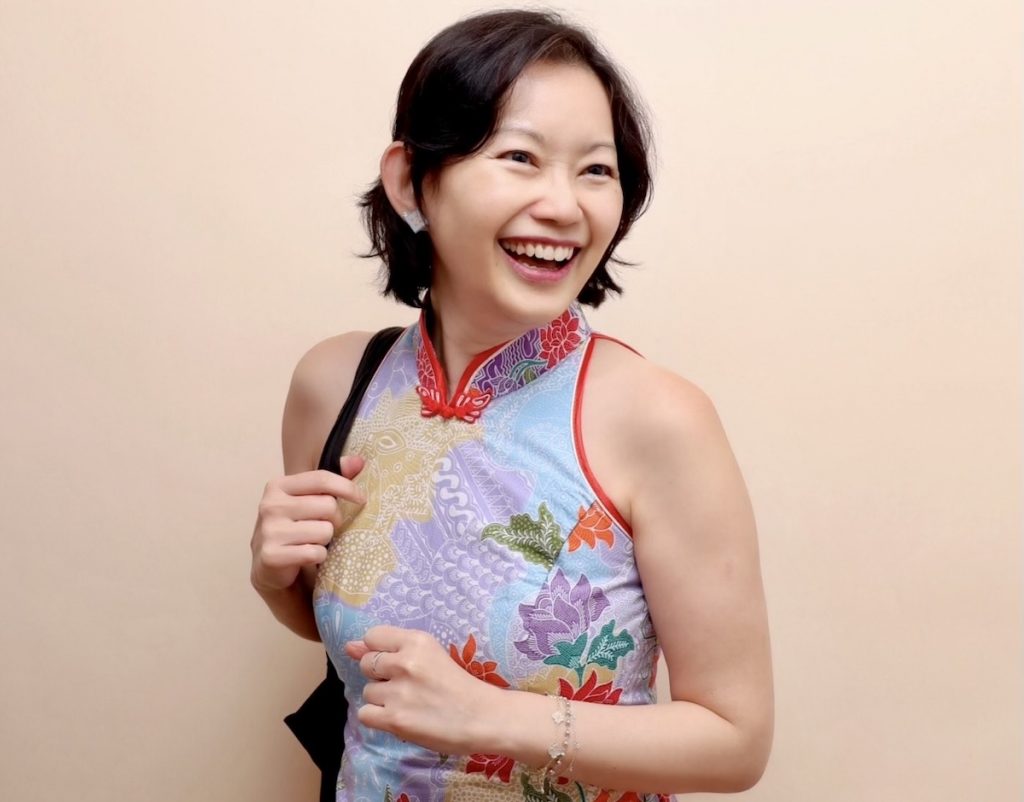Meet Carolyn Kee, mum, child psychologist, and all-around advocate for children’s mental health. With more than twenty years of experience and a compassionate heart, she has helped families deal with everything from autism and ADHD to school stress and anxiety.
She began her career at NUS before bringing her passion for child psychology to the Institute of Psychiatry in London. Over the course of her 20 years at IMH’s Child Guidance Clinic, she managed therapy, evaluations, trauma support, and even emergency behaviour management.
Outside of the clinic, Carolyn is a published author of exquisitely illustrated children’s books that provide relatable insights into mental health for young readers. Her efforts earned her a National Healthcare Group Teaching Award, and she is also an enthusiastic mentor.
Carolyn shares her experience as a mum and psychologist in this edition of Mums We Love, as well as the reasons behind her decision to write children’s books about mental health.
Tell us a little about your family background and growing up years.
My father’s a doctor and my mother was a teacher. I have a younger sister Grace (two years younger) and brother Kelvin (10 years younger). Growing up, I was shy and self-conscious. I immersed myself in the realm of books which took me into fictional worlds that fired my imagination. In those days with far less technology, we played organically, using cardboard and household materials to make costumes and weapons, skating on talcum powder over our bedroom floor and making magic potions with soap and lotions.
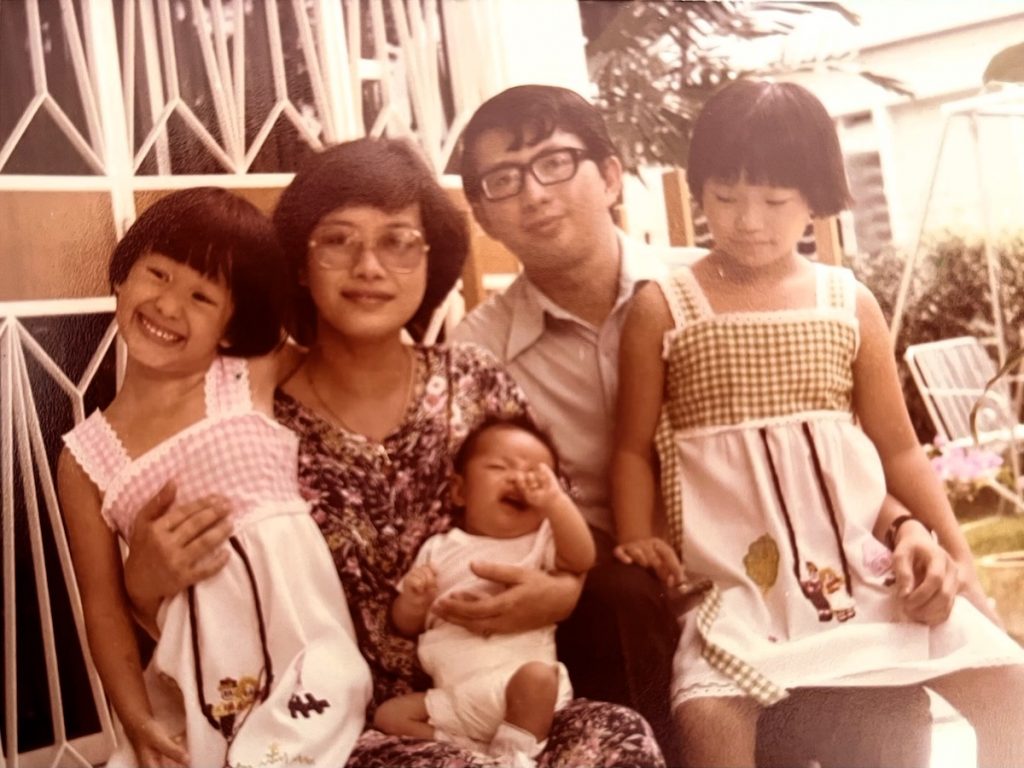
I remember my childhood with fondness, albeit peppered with wince-worthy moments: my sister chasing me with a scissors to cut my hair, having funerals for our dead pets in the garden, enacting Star Wars fights with my friends using lightsabers made of cardboard rolls, panicking when I forgot to bring my school bag to school and tumbling headlong on my BMX into a ditch.
How many children do you have and how old are they now?
Two daughters. 24 and 19.
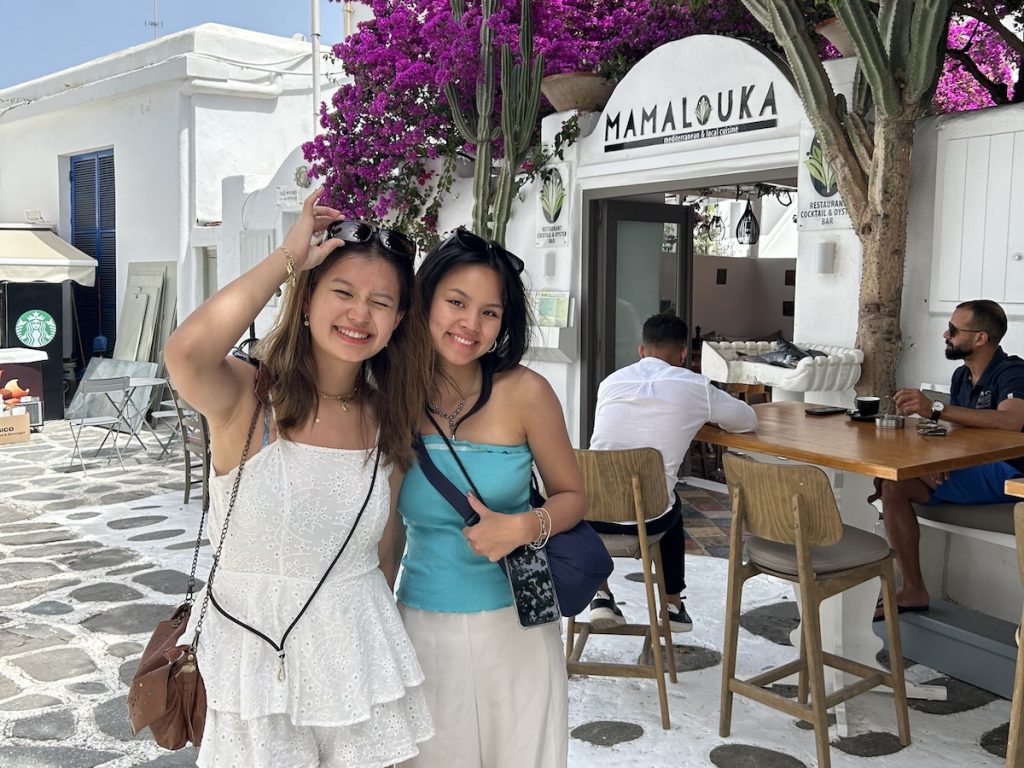
Did you have a role model(s) while growing up? How did he/she/they inspire you?
I wanted to be a doctor like my father when I was young. We used to go to his clinic and roleplay doctor and patient using his medical tools. My father was not afraid to try new ways of doing things and his patients often said that his treatments brought them the relief that other practitioners could not. He was not affected by what other people thought of him and was clear about what mattered most, ie. his family and living by his values of being himself and doing the right thing. He did not require payment from patients who could not afford his treatment and held high regard for those who made it a point to repay him, even years later, because of what it said about their character.
How would you define your parenting style?
It was and still is a work in progress. I started off subscribing to textbook ideals of parenting, only to find that real-life parenting didn’t fit into neat models. It’s a messy interaction between the child’s temperament, the parent’s best efforts tempered by their emotional maturity and capacities, and the systemic environment. Who doesn’t want to be a calm, gentle, loving mother? In real life, you are loving and angry, gentle and harsh, calm and stressed. But you keep going and you try your best to keep getting better at self-regulating and responding in a way that helps your child grow to be an independent, resilient and adaptable individual with their own sound values.
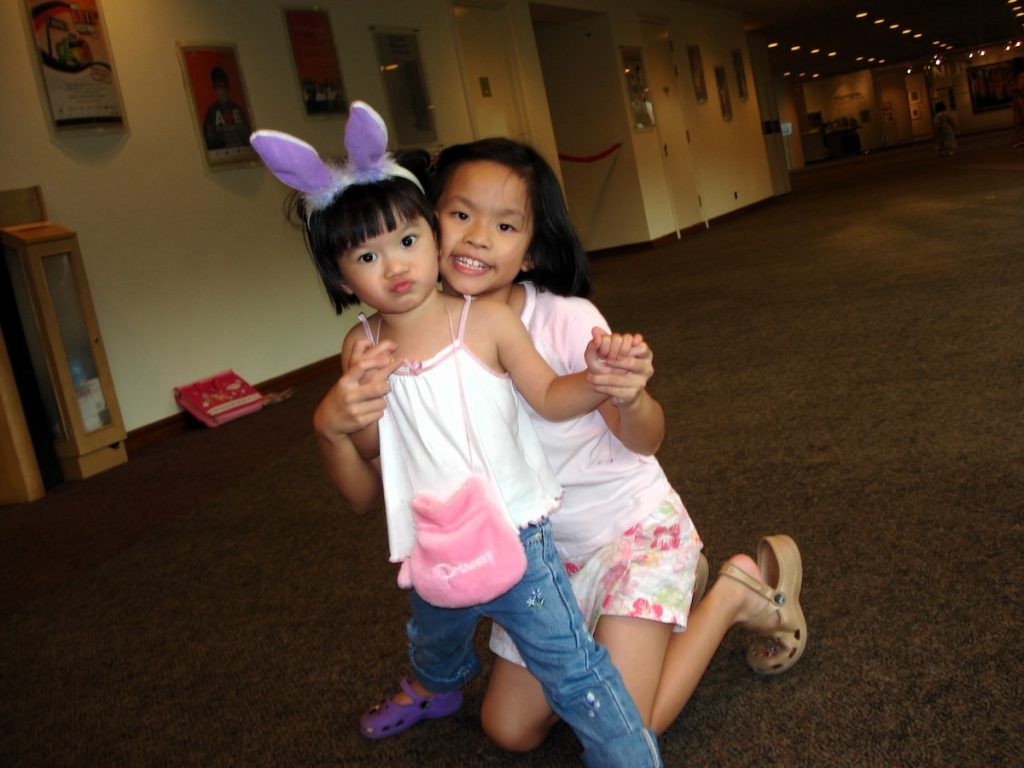
Has your character, attitude and approach to life changed after becoming a mum? How so?
When I was younger, I was a perfectionist. I was largely able to achieve what I set out to do through sheer will and determination. That sense of control came crashing down with the birth of my first child. From day one, she was impossible to control. She screamed until she turned purple, refused to eat, wouldn’t stop moving and cried for hours. She struggled in school and was assessed to have a neurodevelopmental condition in Primary Three. The more I pushed her to focus, the more she panicked and blanked out. I had to let go and prioritise our relationship and a safe, calm home environment over academics. It felt like taking a leap of faith and allowing myself to free fall.
For a time, she continued to struggle, failing one exam after another, but with God’s grace, she found her way and rebuilt her confidence. Through my children, I have learned to regulate my own emotions better, stay anchored in what matters (relationships, self-worth), accept things as they are, trust in the process and allow change to happen naturally.
Most rewarding moment(s) in your motherhood journey thus far?
Two years ago, my oldest daughter said to me, “Mummy, last time there were so many things I couldn’t do, but now I can.” Those simple words encapsulated years of frustration and self-doubt, transformed into a quiet confidence.
My second daughter was involved in a kitchen fire. For months, she had anxiety and panicked when she saw images of fire. She avoided the kitchen and cooking. Recently she made herself an omelette.
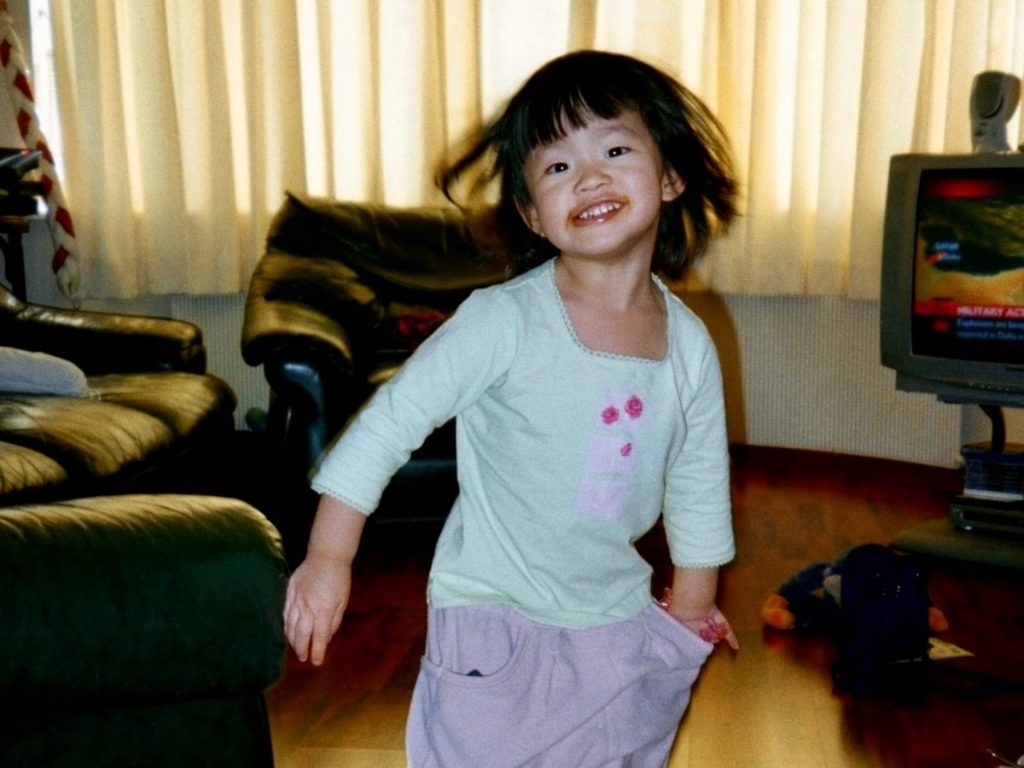
When I see my children fight to overcome their challenges, I feel blessed to witness their growth into the strong, independent and beautiful women that they are.
Three things you absolutely love about being a mum?
1. The countless amazing moments when my kids come up with the wittiest, funniest, darndest expressions that crack me up
2. The moments of physical closeness and intimacy that speak of a child’s innocence and their unquestioning trust in you
3. Having a friend and companion in your child as they grow up to be individuals in their own right
What aspects of your career portfolio are you most passionate about? Why?
I love my work as a psychologist. It’s difficult for me to make small talk in social settings, and I appreciate the heartfelt and meaningful dialogues I have with the individuals I work with. I enjoy the process of getting to know someone at a deep level, to understand their hopes and fears, joys and challenges. It can be difficult but the privilege of journeying with my clients through their darkest moments is one that I do not take lightly, and when they are able to pull themselves out of the depths and thrive, it is very inspiring.
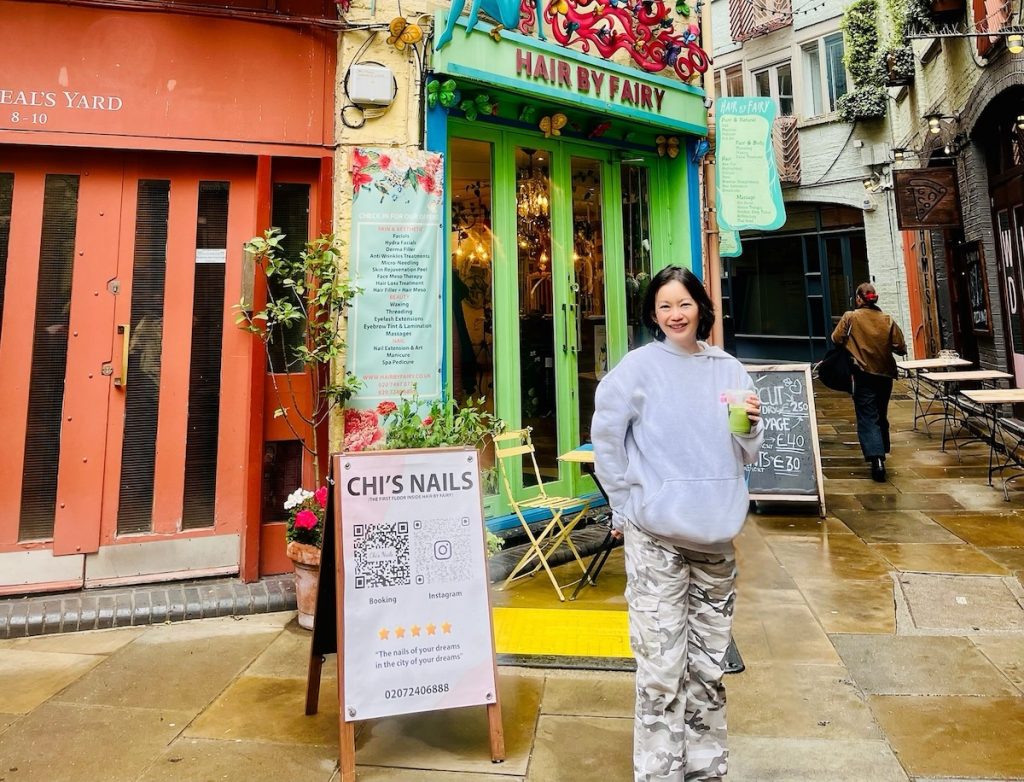
Often, it is the people who struggle the most who have the most beautiful insights. I have young people who write amazing songs to express their experiences and I cannot tell you how raw yet edifying their lyrics can be. I have been blessed by all the people I have crossed paths with and I am truly grateful.
Share with us some challenges parents face nowadays with regards to managing the mental health of their children.
A person’s psychological wellbeing is a function of their biological predisposition and their environment/experiences. Some children may have more sensitive temperaments or innate conditions that affect their mental health. A parent can treat two children the same way and have different outcomes. There may also be factors in the environment that may be difficult for the parent to control, such as the extended family, peer interactions, and social-cultural influences.
Social media exposes children to information and influences that may not always be within the control of the parent, despite our best efforts to limit screen use. Parents may feel confused about the best way to bring up their children given the myriad of parenting advice and approaches that sometimes contradict each other. Parents also often have multiple commitments and limited capacity. It can be difficult to come home from a long day at work, do the house chores, settle the schoolwork and still find the time and energy to spend time with their kids or deal with fights, messes and complaints in a calm and patient manner. It is important for parents to have self-compassion, be open to learning and be gentle with themselves as they navigate the ups and downs of parenting.
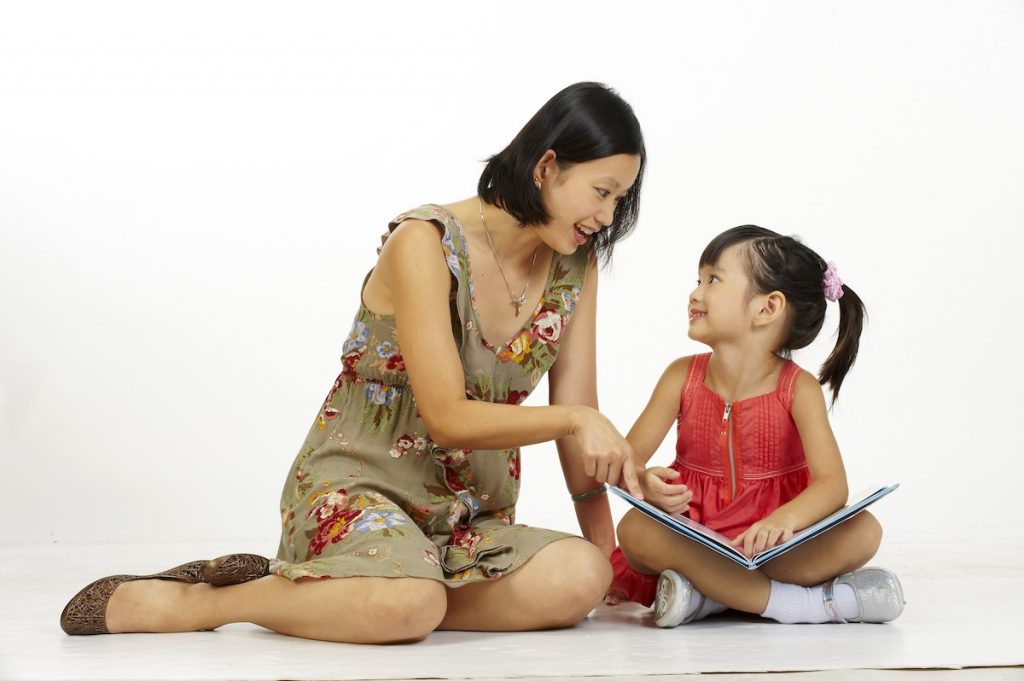
How can parents be more aware of / in tune with the mental health of their kids?
1. Educate yourself on child mental health. There are many good books and websites about the mental health of children that parents can access. Be informed on the signs and symptoms of psychological conditions such as stress, anxiety or depression.
2. Spend time with your child and build a trusting relationship and open communication. Make it a point to spend just 5-10 minutes a day talking to your child or doing an activity together (read, play games, colour or draw). During this time, avoid talking about schoolwork or the child’s behaviour and focus on getting to know them, their interests and their experiences.
3. Build emotional vocabulary and encourage emotional expression. Teach your child to identify and label their feelings and to link their feelings to their thoughts, behaviors and the situation. Create a home environment where talking about feelings is natural. Model sharing of emotional experiences and validate your child when they share their thoughts and feelings.
Tell us all about your books and what inspired you to write them. Also, where can parents purchase them?
I wrote the first draft of my book in 2002. There were many self-help workbooks for adults that taught concepts and strategies for managing psychological issues. As I was working with children and young people, I wanted to create something similar that would appeal to kids. It started as a comic book-cum-workbook and I tried to get it published through the organisation that I worked with at the time. It fell through, so I shelved it until now. With my husband’s support, I decided to self-publish and repackaged it as a comic-style picture book. I was really fortunate to work with award-winning artist Alan Bay, whose incredible artwork brought my vision to life.
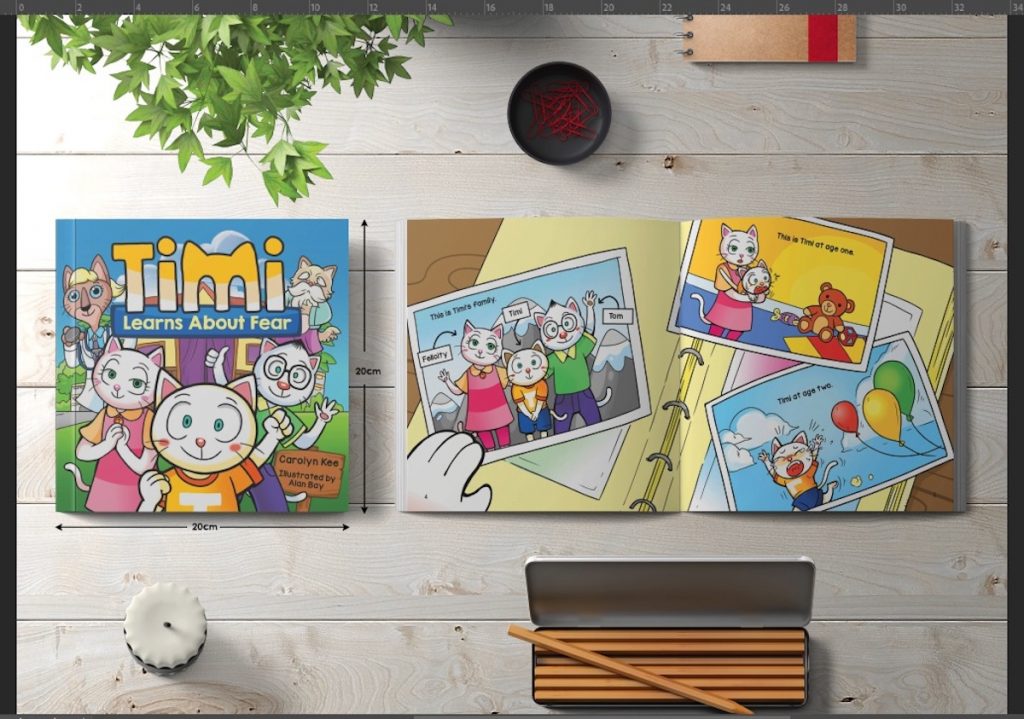
The Timi Book Series follows Timi, an anxious young cat, as he navigates different challenges and learns ways to cope. As they accompany Timi on his journey, readers are introduced to cognitive-behavioural concepts and strategies including
- Understanding how our thoughts, feelings, bodies and actions are interconnected
- Learning helpful actions and coping statements to manage fear and anxiety
- Engaging in grounding and anchoring techniques when in an anxious or panicky state
- Using visualization to manage and feel more in control of the experience
- Recognising unhelpful patterns of thinking
- Exploring alternative ways of looking at a situation
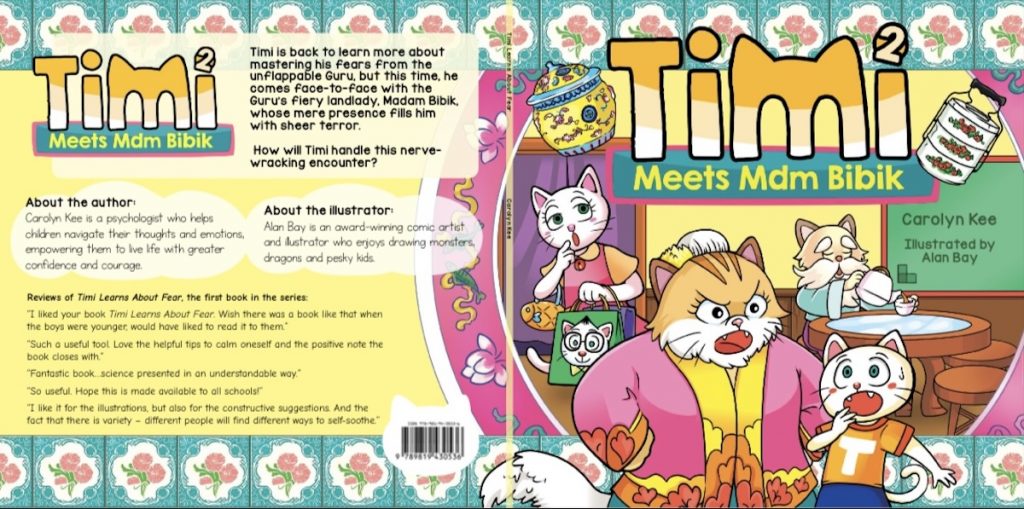
You can find out more about the books on https://www.psychsg.com/timi. The books are available for purchase at Ki Psychology and Junior Page bookstores.
Three things I love to do with my kids are…
As my kids are older now, they are often busy with their own activities. Regardless, we make it a point to have nightly check ins, regular family meals and go on trips together.
I wish that I had more time for…
I’m actually quite happy with my current work-life balance at this stage of my life. If I did have more time, I would want to read more, attend cooking classes, declutter, be more active in church and do more volunteer work.
Future aspirations?
I’m just happy to keep doing my work as a psychologist for as long as I can. Maybe, when I retire, and if I have the energy, I would love to collaborate with some of my clients to share their stories. For now, I want to be open to whatever life brings and allow it to continue shaping and teaching me.



